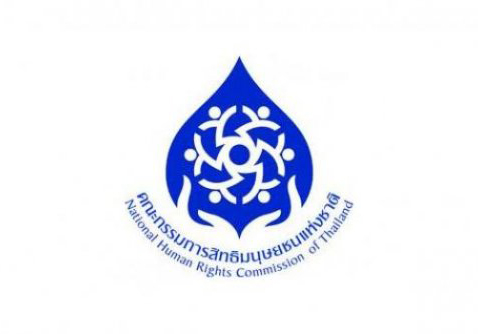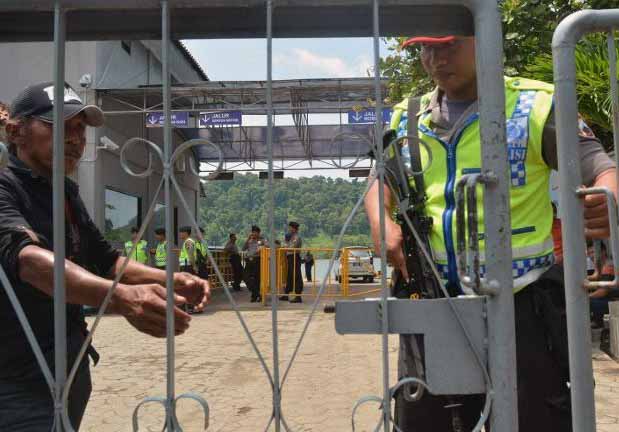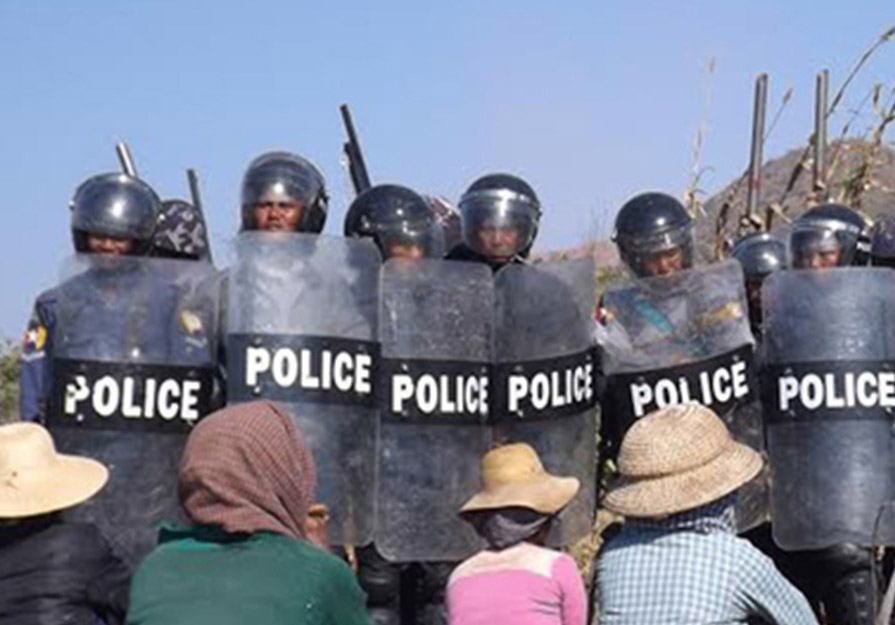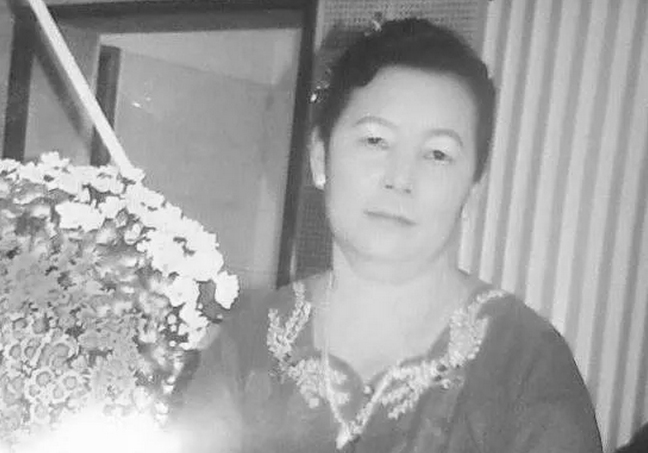
Jun 19, 2015
An opinion piece by James Tager, a Harvard Satter Fellow with the International Commission of Jurists in Bangkok, Thailand.
Observers have been surprised to see the National Human Rights Commission of Thailand (NHRCT) recently solicit candidates for new Commissioners. That’s because the NHRCT’s very existence is at risk right now.
As part of the general deterioration of Thailand’s human rights situation after the coup d’etat of May 2014, the drafters of the country’s new Constitution have proposed to ‘merge’ the NHRCT with the Office of the Ombudsman. This move would end the already weak NHRCT’s ability to function as an effective National Human Rights Institution (NHRI).
The UN and human rights advocates inside and outside the country are calling on Thailand to stop the merger of the NHRCT and the Ombudsman, and to bring selection procedures for new Commissioners in line with international standards governing NHRIs.
Who sits on the NHRCT is a key determinant of whether the body will be effective.
The Thai government should halt the selection process until the selection of new Commissioners conforms to these international standards.
Even before the suggested merger, the NHRCT has often failed to take a strong position on many human rights issues in the country.
Despite these problems, the NHRCT remains part of the framework of human rights protection for Thailand, receiving hundreds of human rights complaints every year.
Given its flaws, it might seem that any attempt to ‘reform’ the NHRCT would be welcome.
But the proposed merger will only weaken the NHRCT, precisely at a time when Thailand’s military junta has given itself sweeping, unchecked powers and invoked a series of repressive laws that have facilitated human rights violations, including the rights to a fair trial and to freedom of expression and assembly.
The merger plan fails to recognize that the NHRCT and the Ombudsman have very different functions. The Office of the Ombudsman has a mandate that extends only to the misuse of power by State officials, has no competence to investigate a situation or violation without first receiving a complaint, and may invoke only national law carrying out its work.
In contrast, the NHRCT has a mandate to examine human rights violations and situations, has powers of investigation which the Office of the Ombudsman lacks, and is guided not only by national laws but also international human rights law and standards.
The new draft Constitution would fuse these two institutions together without clarifying the scope and contours of the new body’s mandate.
Instead, the planned merger threatens to create an institution with weakened powers, restricted authority, and a hazy focus.
Not only is the proposed merger objectionable for what it threatens to change, but also for what it threatens to keep: with only small alterations, the current draft Constitution maintains the same opaque and government-controlled appointment process for new Ombudsman/Commissioners, with little consultation with broader society.
The merger proposal comes at a time when the NHRCT’s independence and credibility has already come under question on the world stage.
The NHRCT, like all officially recognized national human rights institutions, receives its accreditation from the International Coordinating Committee of National Institutions for the Promotion and Protection of Human Rights (ICC), an international body comprising NHRIs across the world.
In October 2014, the ICC recommended that the NHRCT be downgraded from “A” status to a “B” because it does not comply with the Paris Principles, the international standards governing the proper functioning of all NHRIS, including their independence and effectiveness.
The NHRCT has until the end of October 2015 to demonstrate that it has taken sufficient steps to comply fully with the Principles, or the Commission’s downgrade will take effect.
If Thailand takes action now to reform the selection procedures for new Commissioners, such a step could go a long way towards Thailand keeping its “A” status. In contrast, the ICC has already declared that it would construe the proposed merger as further evidence of the need to downgrade the NHRCT.
The ICC may consider the merger as an indication that the NHRCT has been effectively dissolved, leaving Thailand without a genuine NHRI in the eyes of the international community.
Either action would seriously harm the Thai government’s already battered human rights standing. The Thai government frequently refers to the NHRCT’s work at international gatherings when it is trying to burnish its international image, but a downgraded Commission will no longer be able to present to the UN Human Rights Council or vote within ICC meetings.
The Commission will be treated as an observer, rather than an organization in good standing, in its presentation around the world, including during its engagement with the UN Human Rights Council.
Thailand’s NHRCT needs reform, but these reforms should strengthen the body’s ability to operate independently and to protect human rights. A welcome first step would be the immediate reformation of the selection process for new Commissioners.
Instead of submerging the NHRCT into the institution of the Ombudsman, the Thai government should make it a stronger monitor and advocate for human rights in the country.

Jun 18, 2015
An opinion piece by Leong Tsu Quin, ICJ Associate International Legal Adviser.
From 4 to 5 June 2015, the ICJ held a workshop with Indonesian lawyers that we would much rather not have had at all: discussing how to handle death penalty cases in light of the country’s resumption of executions.
Until President Widodo Jokowi suddenly embraced the death penalty, its horrific practice seemed to be on its way out in Indonesia: between 1999 and 2014, only 27 executions took place in the country, and in 2012 Indonesia even dropped its formal opposition to a United Nations General Assembly resolution calling for a moratorium on the use of the death penalty (Indonesia had since 2007 been voting ‘no’; in 2012 it abstained).
All this has changed under President Jokowi, as he has allowed 14 persons to be executed by firing squad since he took power.
All those executed this year had been convicted of drug-related offenses.
Indeed, President Jokowi says that the death penalty is needed to address drug use, claiming in an Al Jazeera interview this year that 4.5 million Indonesians require rehabilitation, and 50 persons die each day from drugs.
Even if this shocking estimate of the scale of the drug problem were accurate, any argument that the death penalty is therefore lawful and justified would be categorically wrong, for reasons we explain later.
But it is becoming more and more urgently clear that President Jokowi’s numbers themselves are deeply flawed and simply unreliable.
A coalition of Indonesian academics and experts, writing in the world’s most prominent medical journal The Lancet earlier this month, had expressed “serious concerns about the validity of” the government’s estimates, and called on the government to “invest in the collection of better quality data on the scale and nature of drug use in Indonesia” through a transparent, peer-reviewed process.
The flimsiness of the numbers that President Jokowi has been using to justify a growing number of executions was really brought home to us by one of the participants in our workshop, Claudia Stoicescu, a PhD candidate at the University of Oxford.
She explained that the Jokowi administration’s claims were based on faulty research, reportedly a 2008 study by the National Narcotics Agency (BNN) and the University of Indonesia.
She told us that the study used poorly-defined classifications, inappropriate recruitment methods, and definitions of addiction that are inconsistent with accepted criteria for drug dependence.
The number of deaths per day, for instance, was determined by surveying 2,143 students, workers and general households who were asked questions such as: ‘how many friends use drugs’ and ‘how many died because of drugs’, rather than the more accurate method of extrapolating based on existing mortality data such as overdose or AIDS-related deaths.
The Lancet article also called on President Jokowi to establish a drug policy based on empirical evidence, rather than resorting to forced rehabilitation and punitive measures.
According to the group, existing studies assessing drug policies and reform proposals showed that a punitive law-enforcement approach is not effective in reducing the prevalence of drug use.
It is equally important, though, to underscore that not only do President Jokowi’s arguments for the death penalty lack any reliable evidence, they are simply irrelevant to and incompatible with Indonesia’s obligations under international law.
Governments, leading UN and other legal experts, and civil society organizations, from around the world, have concluded that the death penalty constitutes a denial of the right to life and is a form of cruel, inhuman or degrading punishment, and is therefore never justified.
Even those who disagree accept that the death penalty is prohibited for anything other than “the most serious crimes” (murder and the like), and then only after a trial meeting the highest international standards of fairness.
In this regard, in 2013 Indonesia was reviewed by the UN Human Rights Committee, which assesses states’ compliance with a key human rights treaty ratified by Indonesia, the International Covenant on Civil and Political Rights (ICCPR).
The Committee confirmed that Indonesia’s use of the death penalty for drug offences violated the treaty as such offences do not meet the “most serious” threshold.
The Committee called for a halt to all executions in Indonesia, but emphasized that at minimum the law should be changed to ensure that crimes involving narcotics were not amenable to the death penalty. It further urged Indonesia to consider commuting all death sentences imposed on persons convicted for drug crimes.
Participants in our workshop highlighted grave failings in trial processes in Indonesia, such as failing to provide translation to allow the accused to understand the proceedings, a fundamental requirement under the ICCPR.
Further examples of how executions in Indonesia violate human rights included authorities proceeding with execution despite their client having been diagnosed with mental illness; and, frightfully, that some individuals shot by firing squad experienced minutes of pain and suffering before finally passing away.
Indonesia is now one of the outliers in the global community for being one of the few countries in the world that continues to apply the death penalty to drug-related offences.
President Jokowi’s stance on drug traffickers is at odds with the facts, with the law, and with global trends – approximately 160 Member States of the United Nations that have either abolished the death penalty or introduced moratoriums.
Jokowi must immediately reverse this unlawful and ineffective approach by halting all scheduled executions and moving Indonesia back toward abolishing this dreadful practice.

May 22, 2015
An opinion piece by Vani Sathisan, ICJ International Legal Adviser, and Hayman Oo, ICJ Legal researcher, in Yangon.
“They can imprison my body, but never my mind,” U Nay Myo Zin told us when we asked him whether he expected to be released, right before police led him into the Dagon Township courtroom for the verdict last week. The Court was teeming with police guards and supporters of the accused chanted slogans at the police, “not to kowtow to the military government” and that “the legal system lacks principle.” U Nay Myo Zin then added, “I will never surrender.”
He was one of the six human rights activists, besides Daw Naw Ohn Hla, Daw Sein Htwe, Ko Tin Htut Paing, Daw San San Win and U Than Swe, who were sentenced to four years and four months in prison with hard labour.
Their conviction, after a trial that didn’t meet basic standards of fairness and due process, highlights the tremendous pressure on the country’s judiciary at a time when Myanmar desperately needs to show improvements in the rule of law.
The protesters were convicted of violating Article 18 of the Peaceful Assembly and Peaceful Procession Law and sections 147, 505(b) and 353 of the Penal Code, specifically rioting, publishing or circulating information which may cause public fear or alarm and may incite persons to commit offences against the State or against the public tranquility, and assaulting or preventing a public servant from the discharge of his duty.
The charges related to their peaceful demonstration outside the Chinese embassy in Yangon on 30 December 2014, calling on Myanmar authorities to carry out an urgent and impartial investigation into the death of Daw Khin Win.
She was shot dead on 22 December 2014 when demonstrating against illegal land confiscations and forced evictions over the Letpadaung copper mine in Monywa.
The Letpadaung project, a joint venture between Chinese-owned Myanmar Wanbao and the Military-owned Myanmar Economic Holdings Limited, has been associated with human rights and environmental abuses and a lack of accountability.
Hundreds of families have been moved to resettlement sites while many others continue to resist evictions from their ancestral homelands.
Villagers complain about the opaque land acquisition process and the lack of genuine consultations and effective environmental impact assessments.
Despite widespread calls, including by the Myanmar National Human Rights Commission, for an official investigation into the Letpadaung shooting, there has been no proper inquiry into the death of Khin Win.
Sources tell us that a case has been recently filed in a township court against a police officer in relation to the shooting, half a year after the incident.
Nobody has been prosecuted three years since police used white phosphorus to disperse monks and villagers peacefully protesting against the Letpadaung mine’s operation and the piling of mining waste on village farmlands.
The lack of accountability for the killing of Khin Win and the incident three years ago stands in contrast against the rapid conviction and harsh sentences meted out to the peaceful demonstrators.
The ICJ has observed and documented the case’s pre-trial and trial phases and considers that they grossly violate international standards of fair trial.
In the hearings we attended, we observed denials of due process.
For instance, bail was denied without a reason after hearings lasting less than five minutes. The hearing in which the defendants were convicted and sentenced also lasted only a few minutes.
The defendants believe more broadly that they were not tried by a competent, independent and impartial tribunal.
The defence further believes that the judges failed to decide the matter on the basis of facts and in accordance with the law, and that “plain-clothed persons” inside the courtroom instilled fear in the judges.
Regrettably, the lack of trust in the judicial system expressed to us by the defendants resonates with what we hear on a regular basis from legal professionals, other non-governmental organisations, and ordinary individuals from around the country, as documented in ICJ’s report Right to Counsel: The Independence of Lawyers in Myanmar.
The accused have complained about poor prison conditions, non-nutritious food and dirty water.
Such prison conditions would not comply with the United Nations Standard Minimum Rules for the Treatment of Prisoners.
Instead of prosecuting—or rather, persecuting—these protesters, the Myanmar government must drop the charges against the protesters and release them.
The government should diligently pursue those who killed Khin Win, and in particular, whether they were linked to the company operating Letpadaung.
Unfairly jailing those who demand justice will not end the resistance to the Letpadaung mine operation, or to the other mega projects now cropping up around Myanmar.
If anything, it will increase tensions and problems.
This is the time for the Myanmar government to show it will strengthen the rule of law for all people in Myanmar.
Photo credit: www.amnesty.org

Apr 23, 2015
An opinion piece by James Tager, a Satter Fellow from Harvard Law School currently working with the ICJ on research focusing on business and human rights in the Asean.
This week, the Asean People’s Forum (APF), an annual convergence of civil society groups coming from all Asean countries, will be held in Kuala Lumpur.
For several days, Kuala Lumpur will be hosting discussions on a number of broad issues of concern, including human rights, development, trade, and the environment.
One way in which the APF is significant is that it constitutes one of very few opportunities for civil society voices to be heard at the regional level.
Asean has always maintained a rather dismissive and condescending approach when dealing with civil society organizations (CSOs).
This approach is very much apparent in the closed and opaque manner in which the Asean Intergovernmental Commission on Human Rights (AICHR) approaches its work.
This has been evident in its development of important regional human rights instruments, such as the Asean Human Rights Declaration (AHRD) and the various thematic studies the AICHR promised to undertake for each year of its Five-Year Work Plan.
Marginalization of civil society has also been reflected in the recently adopted, but not formally released, Guidelines on the AICHR’s Relations with Civil Society Organizations.
One of the AICHR’s thematic studies, on the question of corporate social responsibility, was initiated in December 2011.
Civil society groups, including some with expertise in this area, made queries to the AICHR and offered to contribute to the development of the study.
But with no AICHR procedures in place for CSOs to comment, these offers were essentially ignored.
The development of the study was kept under wraps, with meetings on this topic largely involving handpicked experts, some of whom were not independent.
The resulting Baseline Study on Corporate Social Responsibility and Human Rights in Asean was completed in June of 2014.
It has since been released to the public and posted on the AICHR’s website.
The released document exposes the results of the AICHR’s dismissive approach to the views of civil society.
The study is disappointing in its lack of meaningful content. Several of its aims – most of which were vague to begin with – are either only vaguely addressed or seemingly forgotten, including any discussion of ‘mechanisms allowing effective access to remedy’ for victims of corporate rights abuses.
There is little critical evaluation of the effectiveness of corporate or governmental policies: at one point, the reader is reassured that although one company has been “frequently accused of being a human rights violator,” the company has a good human rights policy described on its website.
The study’s individual country reports may be more substantial, but that is impossible to know as – almost a year since the study was reportedly completed – they have still not been publicly released.
This lack of transparency is astonishing for an intergovernmental regional human rights organization.
Building a foundation on air?
Reading this document, one could forget that entire Asean communities have had their lives and livelihoods damaged by corporate projects, from hydropower dams to coal mines to deforestation.
The AICHR claims that this study could serve as “the foundation for the establishment of a common framework to accelerate the promotion of corporate social responsibility and human rights in the region.”
To build a human rights framework on this foundation, however, is to build on air.
This work did not have to be an empty exercise for the AICHR, which could have built upon well-developed research such as two reports released by civil society groups: The Asian Forum for Human Rights and Development’s (Forum-Asia) Corporate Accountability in Asean: A Human Rights-Based Approach, and the Human Rights Resource Centre’s (HRRC) Business and Human Rights in Asean: A Baseline Study.
The AICHR’s baseline study itself makes repeated reference to these two reports, but refrains from affirming their sensible recommendations.
The two reports contain page upon page of specific and comprehensive analysis that the official AICHR study appears to lack.
These civil society reports also address the framework of corporate accountability, not just voluntary corporate social responsibility.
If the AICHR wants to create a common framework for human rights in the region, whether for corporate behavior or for other fields, it must collaborate with civil society groups that are already doing this important work.
But if the AICHR decides to keep CSOs at arms-length – rather than invite them to be partners in promoting and protecting human rights within Asean – there will surely be more examples of AICHR studies which say little and which mean less.
Malaysia recently took a significant step in developing a national-level policy on business and human rights, with the launch of its Strategic Framework on a National Action Plan on Business and Human Rights.
One notable aspect of the Framework is its provisions identifying how civil society groups can be actively involved in developing the National Action Plan, by using the document to guide their own actions and by providing input to help shape the Plan’s policy recommendations.
Malaysia’s acknowledgment of the positive role that civil society plays in developing and strengthening human rights policies should be commended.
But more than this, Malaysia should use its time as Asean chair to bring this acknowledgment to a regional level.
Malaysia’s chairpersonship includes this opportunity to set a strong foundation for the next several years of human rights protection and promotion.
Involvement of civil society, and commitment to a significant agenda, will help ensure that this foundation is solid.

Feb 2, 2015
An opinion piece by Daniel Aguirre, ICJ’s International Legal Adviser in Myanmar, and Irene Pietropaoli, an independent consultant and researcher on Business and Human Rights based in Yangon.









